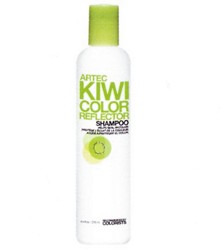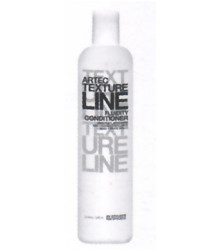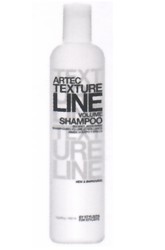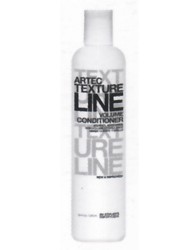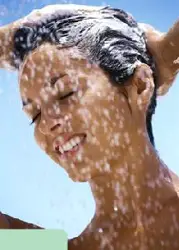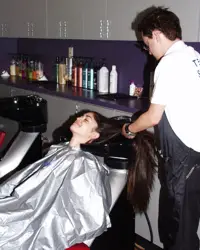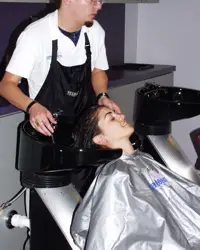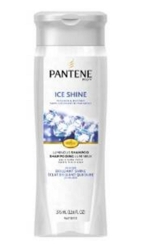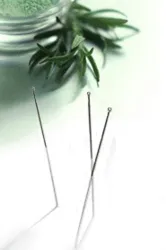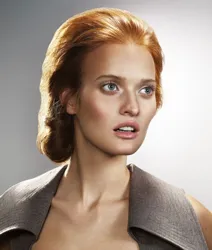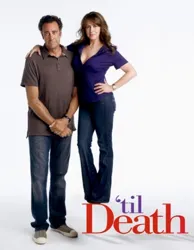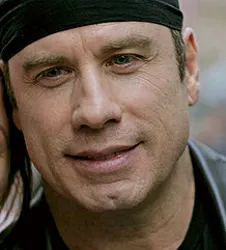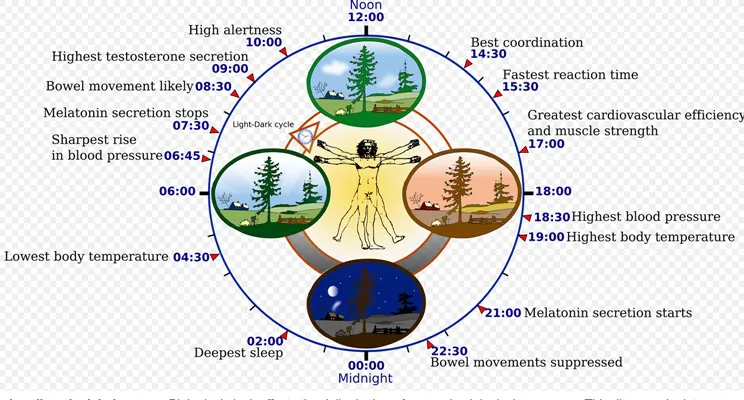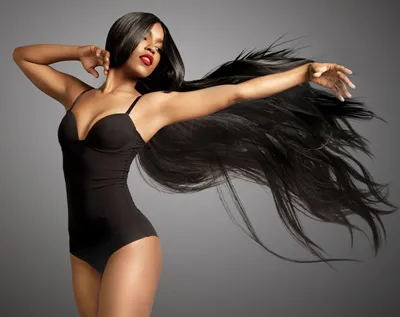
Death Of Shampoo?
Death Of Shampoo?Bloomberg news reported in the Spring of 2014 that hair care giant L'Oreal SA had experienced "weak sales of Garnier shampoo" especially in North America. Am I exaggerating the death of shampoo?
Maybe a tad, but not as much as you might expect.
Poenza Schouler’s CEO Shirly Cook made waves three years ago when she admitted to giving up shampoo.
This week a woman named Lucy Aitken Read launched a book called Happy Hair: The definitive guide to giving up shampoo.
Ms. Read claims she hasn’t used shampoo in two years. She's not the exception to the rule. Many people haven't used shampoo products for extended periods of time.
Have All Shampoo Products Disappeared?
Have all shampoo products gone away?
Of course not, there are still literally hundreds, if not thousands of shampoo products to choose from. However, changing times have prompted many consumers to think about their priorities for cleansing their hair.
Although shampoo still exists, expect many brands to slowly fade away and be replaced by an array of options.
Shampoo Sales Part Of Ongoing Sluggish Trend
If you want to find out if a trend is really happening, you research the giants selling products which might be impacted by a trend.
L'Oreal's consumer-products division was quoted in Bloomberg in the Spring of 2014 as publishing a statement indicating the Garnier brands, which include shampoo and hair color, is experiencing a "sluggish trend" in North America.
What Prompted The Death Of Shampoo?
I still use shampoo on my own hair. However, I only use 1/4 to 1/8th of a teaspoon of shampoo mixed with a clean gallon jug of filtered water which I shake to make a suds which I drizzle lightly over the top of my long hair.
Typically I only wet wash my hair every 14-21 days.
During my 20s into my late 30s I regularly used 1 or more teaspoons of undiluted shampoo on my hair, which I historically washed every day.
When I was committed to every day wet washing I went through several bottles of shampoo a year. Now, I can stretch a single bottle of shampoo for years.
Leland Hirsch - Hair Care Guru & ARTec Developer
Whereas I used to buy multiple shampoo brands, I now just use what I have been hoarding for year, including my first love, ARTec Smoothing shampoo along with ARTec Kiwi Color color reflecting shampoo and conditioner.
It has always been my opinion that Leland Hirsch created one of the very best lines in the most recent history of hair care.
ARTec was originally developed by hair care guru Leland Hirsch. Mr. Hirsch eventually sold the ARTec brand to L'Oreal who eventually discontinued the brand.
Reasons For Death Of Shampoo
There are many reasons for the death of shampoo which include the following:
1. Hair care consumers have become extremely savvy about alternative wet hair cleansing options.
I started to see a trend away from using anything, but a minimal amount of shampoo during the early days of HairBoutique.com in the mid-1990s.
This was especially true with hair care consumers who had long, naturally textured or damaged hair which requires extra special Tender Loving Care (TLC).
Hair care consumers started to investigate alternative cleansing options, including, but not limited to water only washing, my favorite diluted shampoo washing, Conditioner Only Washing (CoWash) where more nourishing conditions are used to wet wash hair.
Known as the no poo trend for no shampoo, consumers were considered with preventing the unnecessary use of detergents, silicones or other ingredients known to strip the hair of natural oils.
Wet cleansing is being replaced by dry shampoo washing which helps to extend time between shampoo while lightly refreshing the scalp and tresses.
2. Consumers have become more inventive about creating their own DIY shampoo formulas.
During the economic downturn which started in 2008, consumers learned to make a lot of their own shampoo formulas.
Some of those same DIY consumers motivated to save a few bucks discovered in the process they loved the feeling of knowing exactly what ingredients were going onto their scalps.
Previous wide-spread fears about chemical additives and sulfates prompted many consumers to take advantage of a tight economy an utilize low cost ingredients to cook up a batch of hair cleansers at home in the kitchen.
As interest in the DIY shampoo movement took flight, a dizzying array of shampoo recipes became available on the Web.
Although many of the pioneers of the DIY cleanser market were long and naturally textured consumers, people with every imaginable type of hair got in on the anti-shampoo movement.
3.High end shampoo lines have lost their luster
As 2008 transitioned into 2009 and 2010, data firm Euromonitor International Inc., published estimates that P&G's best selling shampoo brand, Pantene was losing sales.
Why? Due to the economic downturn, women were trading down from higher end brands including Pantene to Suave and a trendy Tresemmé.
Consumers were no longer willing to pay what they considered excessive prices for shampoo, especially when those shampoo were chock full of unwanted chemicals which might actually harm their tresses, scalps and health over time.
While many people might spend more for hair care products which provide special effects such as softening or deep conditioner, generally they are willing to spend excessive amounts for a bottle of shampoo, designed to simply clean the hair.
Pantene's 2009 Sales Drop
While women were washing their hair less often, hoarding their pre-existing supplies and making their own products, they were also not buying as much Pantene. According to Euromonitor in 2009 Pantene's U.S. sales dropped 9% to $812 million.
Pantene's drop was considered by experts to be far steeper than declines in the overall shampoo, conditioner and styling market in general.
4. Lines between professional and consumer shampoo lines have faded
Before the economic downturn merged with the No Poo market, hair consumers often bought shampoo products at the direct recommendation of their professional stylists. In fact, may consumers purchased their shampoo and related products at the salon.
Even though hairstylists knew that the detergents embedded in professional product lines were harmful, they were often pressured by hair care line marketers and distributors to push products to their clients.
With the introduction of professional products into mass marketing outlets and on Amazon, consumers had the option to purchase professional products without the intervention of their hairstylist.
The availability of professional only shampoo and related hair care at Target, Walmart, Kroger and similar triggered a wave of competitive pricing which professional salons couldn't often match.
Amazon.com took the professional shampoo market into an even more competitive realm of discounted pricing as distributors, stylists and salons began selling directly to consumers.
5. Rise of the savvy hair care consumer
In the past, big name celebrities hawking shampoo benefits could drive consumers into stores in droves. In 2014 this trend is no longer true.
Not only are consumers aware of the high overhead shampoo manufacturers must pay to a Katy Perry or similar celebrity, they are buying shampoo based on price and absence of harmful ingredients.
Since the rise of Social Media, hair care consumers are getting advice about the best shampoo products to buy on Facebook, Twitter, Instagram and similar. They are also sharing DIY shampoo recipes, discount shampoo coupons and signing up for a wide range of shampoo product giveaways.
Summary - Death Of Shampoo?
If current trends continue, traditional shampoo use will continue to decline. Hair care consumers are more concerned than ever about the health of their scalps, tresses and bodies.
They are also less traumatized by bad hair days than ever before. They care more about avoiding harmful ingredients, protecting their tresses and avoiding unnecessary hair care treatments. In fact, when possible, they will make their own wet cleanse solutions.
Today's consumers area are also more stressed than ever before while being pressed for time.
Consumers no longer have time to wet wash their hair every day or even more than 1-2 times a week.
Will traditional shampoo products ever completely die?
Probably not. However, the shampoo of the future is eventually going to be replaced with an array of better options.Social Media Network Information
Please follow us on Twitter at: https://Twitter.com/HairBoutique. I look forward to meeting new people from all walks of Twitter and learning from their Tweets.


